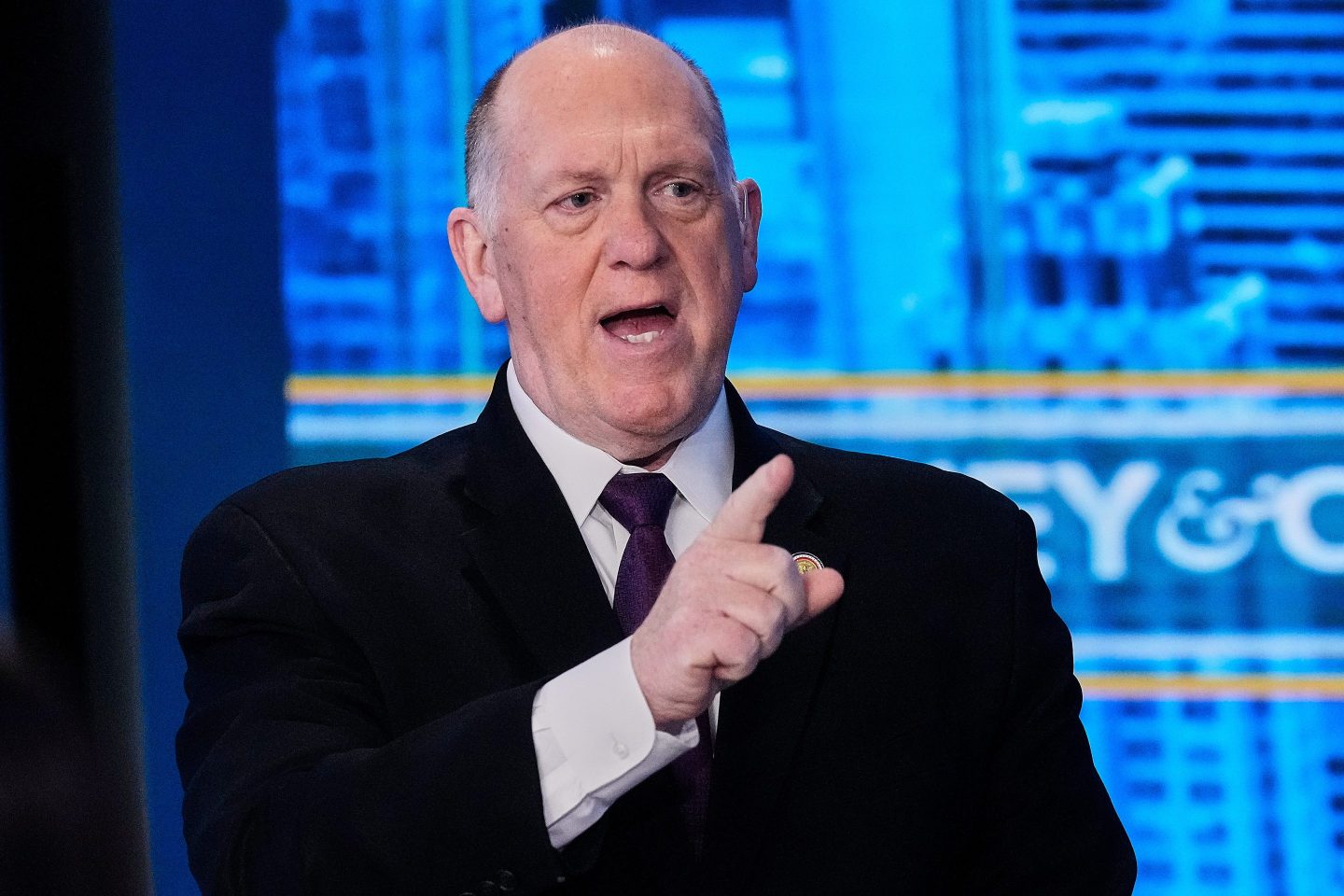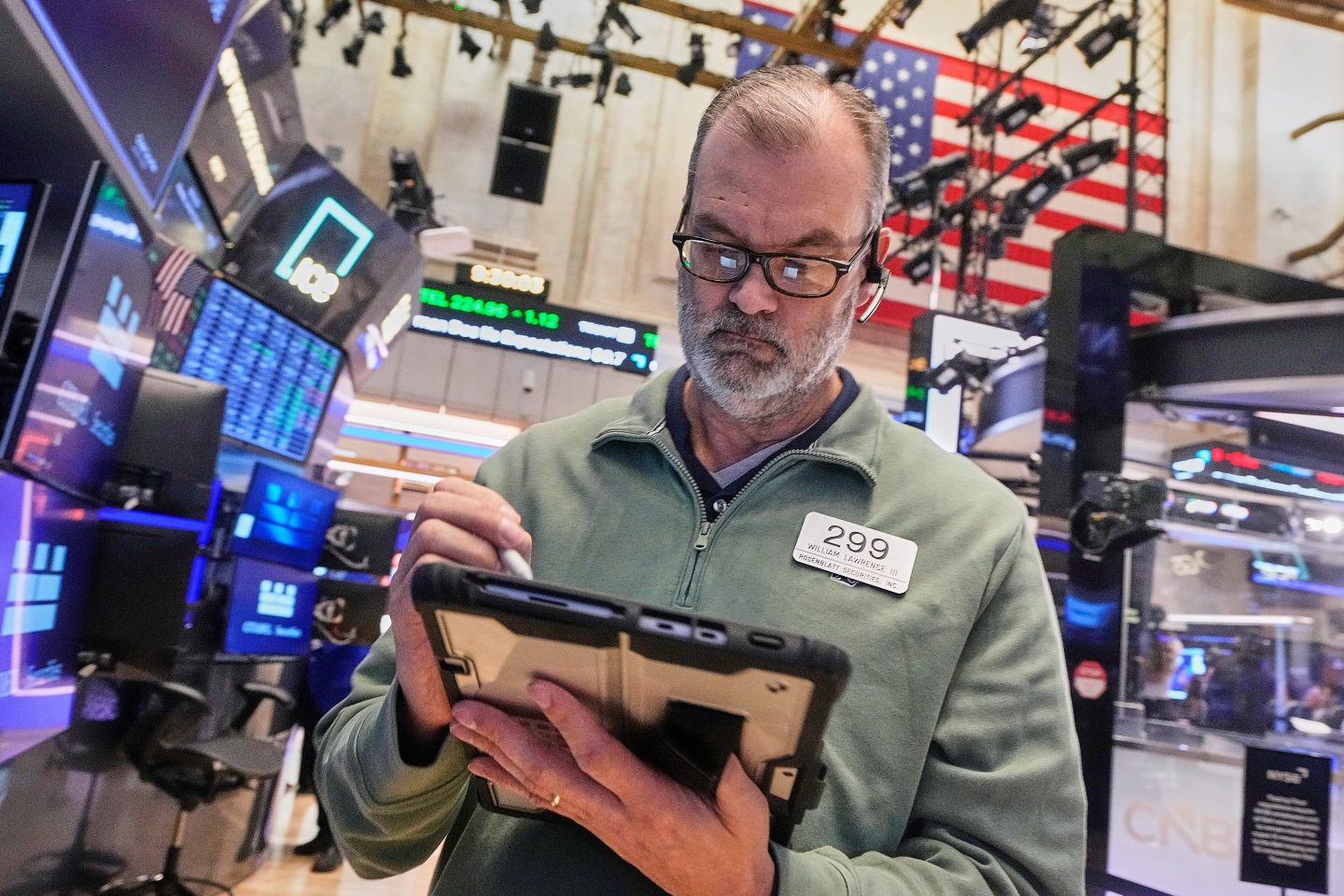Elon Musk has been banging the drum for months that the Federal Reserve is chiefly to blame for Tesla’s flagging sales in its domestic U.S. Market. He believes that if the Fed cuts interest rates it will make borrowing costs lower, thus fueling demand.
The start of a long easing cycle, widely expected to begin this September, could cut interest rates nearly in half by the end of 2026. But don’t expect the EV manufacturer to profit disproportionately, one former industry executive warned.
“A Fed rate cut will help the overall industry; I don’t think it’s going to benefit EVs over internal combustion engines,” Mark Fields told CNBC on Friday.
Fields is intimately acquainted with the auto industry, having served as CEO of Ford for four years and later in charge of Hertz on an interim basis. He shepherded the latter out of bankruptcy in 2021, after air travel dried up during the pandemic and with it the need for rental cars.
Hertz deal to buy Teslas was boon for Musk—a bane for Hertz
In fact it was Fields who was behind Hertz’s now infamous October 2021 purchase of 100,000 Teslas at the height of the speculative EV boom. The company was worth a little more than $4 billion in revenue at the time; the deal fueled a $119 billion surge in Tesla’s market cap and turned it into a trillion-dollar company overnight.
Fields added that insurance rates remain excessive for EVs specifically, a fact the National Association of Insurance Commissioners attributed in February to the lack of both a steady supply of replacement parts and trained mechanics authorized to service high-voltage vehicles.
“When people look at buying EVs, they also look at the insurance piece of it. And insuring an EV is much more expensive than insuring an ICE [internal combustion engine] vehicle,” he said.
Ironically, one of those hit hardest by EV repair costs has been Hertz, thanks in large part to Musk and Tesla.
Tesla’s U.S. Sales fell year on year for the past two quarters in a row, and currently it’s tracking toward a drop of about 50,000 units to 600,000 vehicles, according to Cox Automotive’s Kelley Blue Book. Even if you smooth out the last six quarters, growth in its domestic market has effectively ground to a halt.
Interest rates hurt everyone in the industry
Musk has been quick to point to the high borrowing cost of Tesla as the chief culprit, arguing that the desire to own Tesla is “indistinguishable from infinite” once the price is low enough.
“As interest rates drop and that monthly payment drops, then they’re able to afford it and they buy the car. It’s pretty straightforward,” Musk told investors during the Q4 earnings call in January.
Later in April, he added: “The vast majority of people are living paycheck to paycheck. So it actually makes a difference if the cost per month of lease refinancing is $10 one way or the other.”
While affordability certainly has been an issue, every carmaker operates under the same interest rate environment. Critics, including a number of bulls, have pushed back on Musk’s claims that his stewardship of the company plays no role.
Arrival of new Tesla models expected to reignite growth
For one, Tesla is unique in the industry in that it refuses to spend money on anything but token advertising campaigns for online media—like his own X platform—preferring not to incur those expenses.
Secondly, Tesla’s own captive financing operation—a business that can help drive volumes and, if managed properly, be a reliable profit contributor—is vestigial at best.
One out of every four new cars sold in the United States is leased, for example. Yet Tesla has traditionally eschewed providing first-party financing since it books a considerable amount of upfront cash, relying instead on traditional lenders to help customers with payments.
Finally it has an aging portfolio; data from Kelley Blue Book shows the chief culprit behind its poor performance is the Model 3. The midsize vehicle, whose body style competes in an already challenging sedan segment, is a full seven years old. It was launched way back in July 2017. As a result, U.S. Sales have plunged 35% in the first half to 73,552 cars over the year-ago period.
None of these roadblocks to growth fundamentally fall away once the Federal Reserve lowers rates. Indeed, past hopes that this year’s change in the $7,500 U.S. Federal tax credit—which has been offered since January directly at the point of sale—could jump-start Tesla’s U.S. Sales have not panned out.
That’s why bulls are now counting on the arrival of new Tesla models in the first half of next year to reignite growth.













